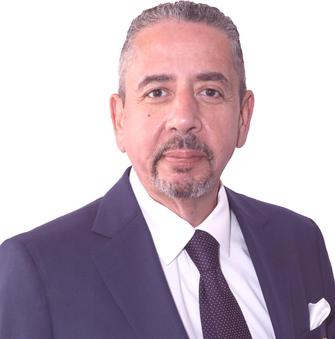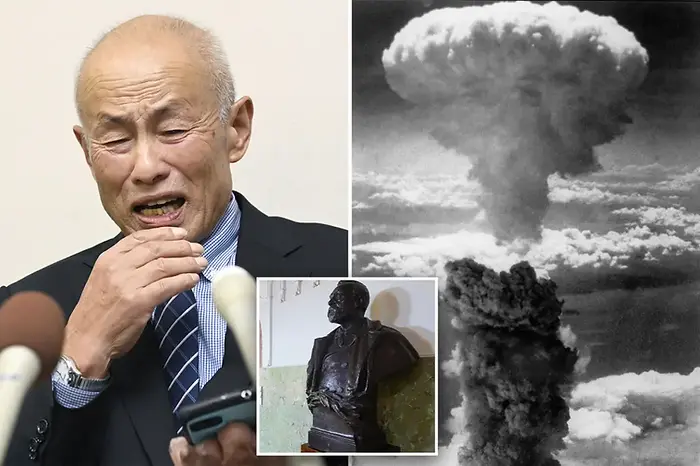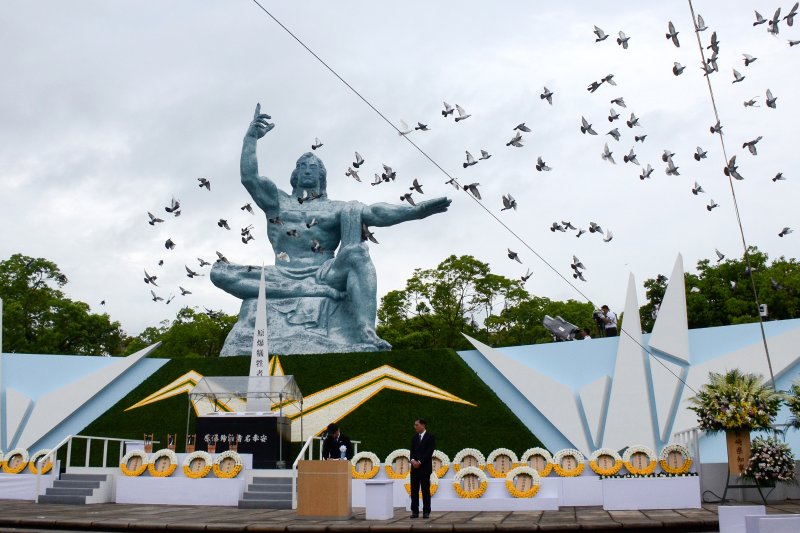By Ahmed Fathi
New York: Today, August 9, 2025, the world pauses to mark 80 years since the atomic bombing of Nagasaki — one of humanity’s darkest days and a warning still unheeded. At 11:02 a.m. on this date in 1945, a bomb more powerful than the one dropped on Hiroshima three days earlier erased entire neighborhoods in seconds, killing an estimated 74,000 people. Those who survived — the hibakusha — carried invisible wounds, suffering for decades from leukemia, cancers, and other radiation-induced illnesses.

This morning, in a solemn message to the Nagasaki Peace Memorial, UN Secretary-General António Guterres called their testimony “an eternal moral compass for our world.” As their voices grow fewer with time, their truth becomes sharper: nuclear weapons bring no safety, only annihilation.
I have seen what they warn against. In 2019, I traveled to Kazakhstan’s Semipalatinsk and Kurchatov — epicenters of Soviet nuclear testing. I saw the cost of radioactive fallout in the quiet halls of a research institution, a nursing home, and an orphanage: infants born with serious birth defects, whole villages destroyed by cancer, and landscapes still poisoned decades later. This wasn’t history; it was happening right now.
While I have not yet visited Hiroshima or Nagasaki, the latter is never far from my mind. At United Nations Headquarters in New York, I pass the statue of St. Agnes in the Disarmament Pavilion — a gift from the people of Nagasaki. Her serene yet sorrowful presence is a reminder that the shadow of that August morning is not confined to history books; it stretches across our present, urging us to act.
In Nagasaki today, bells rang in unison for the first time since the bombing. Water was offered in solemn tribute, echoing the cries of victims in 1945 whose burned lips begged for a drop to drink. Survivors like 93-year-old Hiroshi Nishioka — just 3km from the blast — recalled how even those who seemed spared soon began to bleed from their gums, lose their hair, and die one after another.

It is no coincidence that the first resolution adopted by the UN in 1946 called for the elimination of nuclear weapons. Eight decades later, the nuclear shadow has not lifted. Nuclear arms are again central to national security doctrines, brandished as tools of coercion. Global military spending is at record highs, while peace and development funding falters.
Yet, there are sparks of hope. Last year, Nihon Hidankyo — the Japanese organization representing the survivors of Hiroshima and Nagasaki — received the Nobel Peace Prize for decades of advocacy. And in 2024, UN Member States adopted the Pact for the Future, recommitting to a world free of nuclear weapons.
But recommitment without action is betrayal. The architecture of the nuclear non-proliferation regime — anchored by the Treaty on the Non-Proliferation of Nuclear Weapons (NPT) and strengthened by the Treaty on the Prohibition of Nuclear Weapons (TPNW) — must be defended, expanded, and enforced. That means:
• Reviving disarmament diplomacy to restore trust and transparency.
• Restoring the moratorium on nuclear testing and achieving universal ratification of the Comprehensive Nuclear-Test-Ban Treaty (CTBT).
• Reducing nuclear stockpiles through verifiable agreements.
• Replacing deterrence doctrines with commitments to abolition.
The hibakusha, the victims of Semipalatinsk, and the people of Nagasaki share a tragedy — and a warning. Commemoration without commitment is hypocrisy.
Eighty years after the firestorm over Nagasaki, we face the same choice as in 1945: continue under the nuclear shadow, or step into the light of a world without it.
The time to choose is now. And the only moral choice is abolition.
Original URL: https://www.amerinews.tv/posts/80-years-after-nagasaki-the-only-moral-choice-is-abolition




